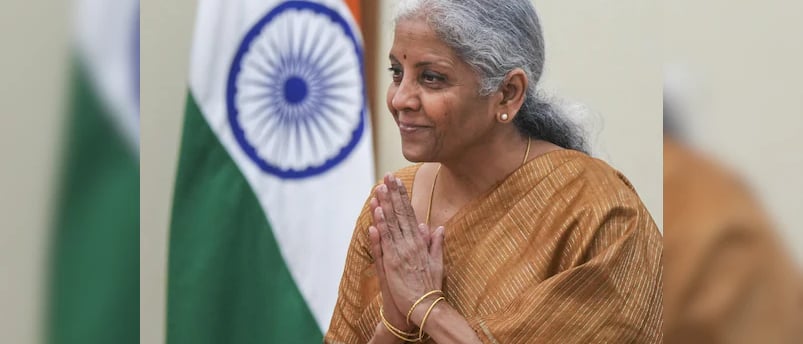Add your promotional text...
GST Decisions Deferred: What It Means for Insurance, Food Delivery, and Aviation
Synopsis: The GST Council’s 55th meeting, chaired by Finance Minister Nirmala Sitharaman, deferred major decisions on GST exemptions and rate reductions for life and health insurance premiums. Key discussions also touched on extending the GST compensation cess and revisiting the tax implications for food delivery platforms and aviation turbine fuel. The decisions hold significant implications for multiple industries and consumers alike.
TOP STORIES
By Vishwas Saxena
12/22/20243 min read


GST Council's 55th Meeting: Critical Issues on Hold
The 55th meeting of the Goods and Services Tax (GST) Council in Jaisalmer was anticipated to bring clarity on several pressing issues, particularly the tax treatment of life and health insurance premiums. However, the council, led by Union Finance Minister Nirmala Sitharaman, deferred key decisions, citing the need for further technical deliberations.
Insurance Premiums: A Long-Awaited Relief Deferred
One of the most awaited decisions revolved around GST exemptions or rate reductions for life and health insurance premiums, a longstanding demand from both the insurance industry and policyholders. The proposed changes aimed to alleviate the financial burden on consumers while making insurance products more affordable.
Proposed Changes:
Full GST exemption for term life insurance policies.
GST exemption for health insurance premiums paid by senior citizens.
Reduced GST rates for health insurance policies covering up to ₹5 lakh for non-senior citizens.
The existing 18% GST would still apply to policies exceeding ₹5 lakh coverage.
Reasons for Deferment:
While most members of the Group of Ministers (GoM) on the issue supported full exemption for life and health insurance premiums, others suggested a rate cut to 5% instead of complete exemption. Bihar Deputy Chief Minister Samrat Chaudhary, who leads the GoM, acknowledged the need for more discussions and confirmed another meeting in January 2025 to finalize recommendations.
Broader Implications for the Insurance Sector
Delaying these decisions extends the tax burden on both insurers and consumers, potentially dampening the adoption of health and life insurance policies. With rising medical costs and increasing awareness of the need for insurance, the sector had hoped for immediate relief to boost penetration. The council’s eventual decision could redefine affordability and accessibility in the insurance market.
GST Compensation Cess: Extension Likely
The council is also considering extending the GST compensation cess by six months, pushing the deadline to June 2025. This extension would provide states additional time to recover from revenue losses post-GST implementation.
Food Delivery Platforms: A Retrospective Tax Decision Pending
Another contentious issue discussed at the meeting was the applicability of the 5% GST on delivery charges by food delivery platforms. Currently, these companies do not pay GST on delivery charges.
Retrospective Application:
The council will decide whether the 5% GST rate should be applied retrospectively from 2022, a move that could impose additional liabilities on food delivery platforms and potentially increase costs for consumers.
Aviation Turbine Fuel: A Push for GST Inclusion
The aviation industry’s plea to bring aviation turbine fuel (ATF) under the GST regime was also on the agenda. Currently, ATF is taxed separately by states, leading to significant cost variability. Including ATF under GST could standardize tax rates and provide relief to airlines grappling with high operational costs.
Key Takeaways from the Meeting
The council’s discussions highlight the complexity of balancing stakeholder interests across industries:
Insurance Sector: The deferred decisions on GST exemptions or reductions for insurance premiums could delay much-needed financial relief for policyholders. However, the council’s commitment to further deliberations offers hope for a consumer-friendly outcome in the near future.
Food Delivery Platforms: A retrospective GST application could significantly impact platform profitability and consumer pricing, potentially altering the dynamics of the online food delivery market.
Aviation Industry: Including ATF under GST could streamline taxation and enhance the financial stability of airlines, especially in a competitive and cost-sensitive market.
What Lies Ahead?
As the GST Council reconvenes in the coming months, stakeholders will closely monitor developments on these critical issues:
The next GoM meeting in January 2025 will likely finalize recommendations on insurance premium tax treatments.
Decisions on retrospective GST for food delivery platforms and the inclusion of ATF under GST remain high on the agenda.
The extension of the GST compensation cess is expected to provide temporary relief to states as they adjust to the post-GST financial landscape.
A Balancing Act for the GST Council
The 55th GST Council meeting underscores the complexities of implementing tax reforms that cater to diverse sectors while ensuring fiscal stability. Although decisions on critical issues were deferred, the council’s continued focus on these matters reflects its commitment to resolving them effectively.
For now, industries and consumers must await the outcomes of future deliberations, which will play a pivotal role in shaping the economic landscape and influencing consumer behavior in India. As these decisions unfold, they hold the potential to redefine the affordability of insurance, the economics of food delivery, and the cost structure of the aviation industry.
